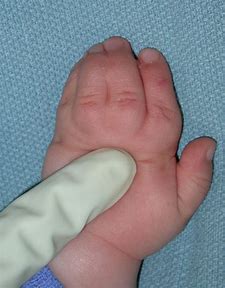Money habits are a never-ending subject. Everybody has an opinion on what’s wrong and what’s right, and what worked for them.
Let’s agree that there is no one-size-fits-all solution. It takes a financial coach to decode your money DNA, and find ways to circumvent it for positive change.
I bring a conversation to you which took place in a financial literacy program I conducted.
I’m curious to know, what does priming your lifestyle mean?
Have you seen the painter apply a primer before the actual colour?
Yes. But why?
Application of paint is smooth. Is it easy to do something for the first time, or when you’ve done it several times before?
When I have practice.
When you have practice, it becomes effortless. But when do we start thinking about money habits?
When we have a problem…
Exactly … when we want to set an example for others, when we are close to retirement or facing a financial crisis. But why don’t we think about it before to avoid a financial crisis?
You’re right… You tell us how.
Okay, let’s start.
How is the system working against your financial wellness?
- The economy needs a boost.
- People need to spend more.
Sir/Madam, you are eligible for a personal loan, or increased limit on your credit card.
First two sessions are free, thereafter…
You can be on any site, and the ads of something you clicked on keep dropping, reminding you “Your cart is waiting.”
Somebody else has to meet their financial goals.
Business needs to run. The economy needs to run.
What about your financial goals?
That is exactly what we tend to forget.
Why do we give in?
- Identity
We identify ourselves as belonging to a certain class, and go for status symbols.
- Belonging
We see ourselves as members of a particular segment or group, and do everything to retain that membership.
- Short-term view
The mindset is about tackling the immediate problem first.
- Information is dropping at you from all sides
Information overload leads to confirmation bias and recency bias. Recent can be anything from the last 10 minutes to six months.
What can we do to change unhealthy money habits?
1. First, accept that habits can be changed.
Syndactyly or webbed fingers are a condition where a child is born with joint fingers. It seems that the system is not wired to move fingers independently after corrective surgery.

But is does happen. The child learns to move fingers independently.
It is possible to break out of an ingrained routine and create new money habits.
2. New things become routine after a certain of period of time.
If the new habit interferes with your identity, the identity needs to be changed.
“I’m a health-conscious individual who rides a bicycle”
needs to replace the thought
“I can’t be seen driving a low-end car”
The law of association and repetition needs to associate with your new autobiographical self.
3. Putting things on autopilot
Whatever we call thinking out of the box is just rearranging synaptic cells in the brain.
Whatever is outside the box, comes inside
Life then moves on autopilot with the new money habits.
4. Knowing your own potential
We are what we repeatedly do. Excellence then is not an action, but a habit.
How do we create the right habits? There are various modalities and sub-modalities to this.
Next week, let’s see what are the money habits you can inculcate in your day-to-day routine to ensure financial wellness.
It is about awareness and mindfulness, not being a financial or investment expert.
Let’s see what experts say about the use of gamification on money habits.